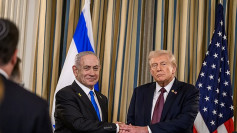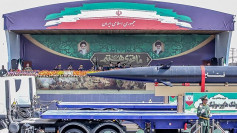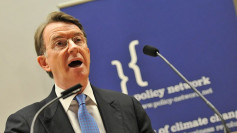King Charles III arrived in Australia this week for his first official visit as reigning monarch, but the country greeted him with a blend of admiration and ambivalence. His nine-day trip, which includes stops in Sydney, Canberra, and the Pacific island nation of Samoa, comes at a time when Australia is increasingly questioning its ties to the British monarchy. While the king expressed his "deep love and affection" for Australia, many Australians appear divided over whether they still want the British monarch as their head of state.
The royal visit, King Charles' first major foreign tour since ascending the throne and since his recent cancer diagnosis, comes just as republican sentiment in Australia has been gaining momentum. Although the king's arrival was marked with traditional fanfare, including a tribute displayed on the sails of the Sydney Opera House, polls suggest a growing number of Australians are rethinking their relationship with the monarchy.
In 1999, Australians rejected a referendum to become a republic, but that sentiment may be shifting, especially after the death of Queen Elizabeth II in 2022. Australian Prime Minister Anthony Albanese, who has long supported the idea of a republic, has expressed openness to holding another referendum on the issue. However, his government has indicated that it is "not a priority" at this time, in part because of other pressing political matters.
Despite the uncertainty surrounding the monarchy's future in Australia, Charles and Queen Camilla were greeted with warmth by some during their arrival in Sydney. However, key political figures were notably absent from certain ceremonial events. The premiers of Australia's six states-New South Wales, Victoria, Queensland, Western Australia, South Australia, and Tasmania-all declined to attend a reception at Parliament House in Canberra, citing prior commitments.
Bev McArthur, a lawmaker from Victoria and a spokesperson for the Australian Monarchist League, criticized the premiers' decision as an insult to the monarchy. "It's a snub, an insult, and a slap in the face," McArthur said in an email, dismissing their explanations of scheduling conflicts as "spineless."
Conversely, Nathan Hansford, co-chair of the Australian Republic Movement (ARM), defended the absence of the premiers. He argued that they were focused on more important duties and emphasized that Charles would likely understand their absence. Hansford and the ARM have used the king's visit to advance their own agenda, branding the trip as "The Farewell Oz Tour" and calling on Australians to "wave goodbye to royal reign." The group has even launched merchandise to support their campaign, including T-shirts and tea towels.
While ARM's protests highlight growing republican sentiment, public opinion on the issue remains divided. A recent YouGov poll showed that around one-third of Australians are ready to transition to a republic, while 35% support keeping the constitutional monarchy. The rest are undecided, reflecting the complexity of the debate.
Further complicating the situation is Australia's continued removal of royal symbols. Last year, the country decided to replace the image of the British monarch on its $5 bill with an Indigenous design, signaling a shift toward honoring Australia's own heritage and culture over its colonial past. Nathan Hansford of ARM called the Sydney Opera House tribute to King Charles a misstep, stating, "Our public spaces should reflect a story that is truly our own."
Despite these divisions, King Charles has shown his commitment to the Commonwealth nations. His visit underscores his ongoing connection to Australia, where he has made 16 previous trips, including a six-month stay as a teenager. For Charles, the Commonwealth and its member nations are central to his reign. As NBC News royal commentator Daisy McAndrew noted, the king's decision to proceed with the visit despite his health challenges demonstrates "how important the realms and the Commonwealth are to him and his reign."
The king's trip also carries a symbolic weight, as he was recently granted the honorary ranks of Admiral of the Fleet of the Royal Australian Navy, Field Marshal of the Australian Army, and Marshal of the Royal Australian Air Force. Governor-General Sam Mostyn, representing Australia's government, honored King Charles during a ceremony that highlighted the longstanding relationship between the monarch and the Australian Defence Force.
Following his time in Australia, Charles will continue to Samoa, where he will meet with world leaders at the Commonwealth Heads of Government Meeting. The focus of these discussions will be climate change, an issue of particular importance to the Pacific island nations.






